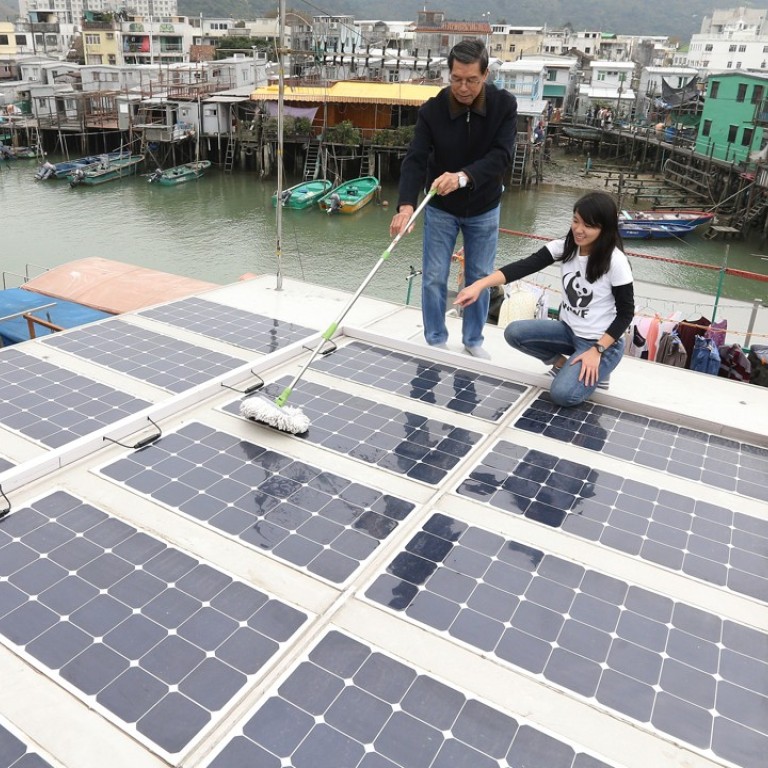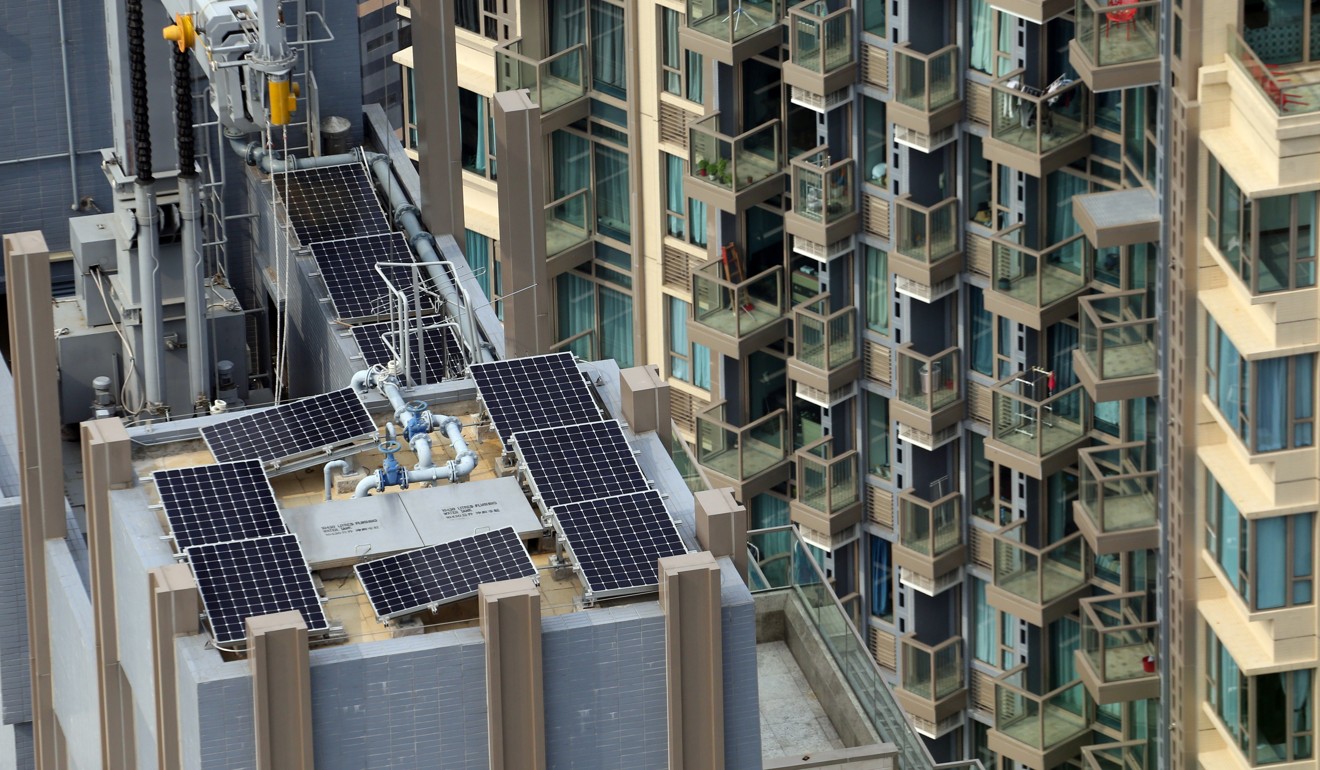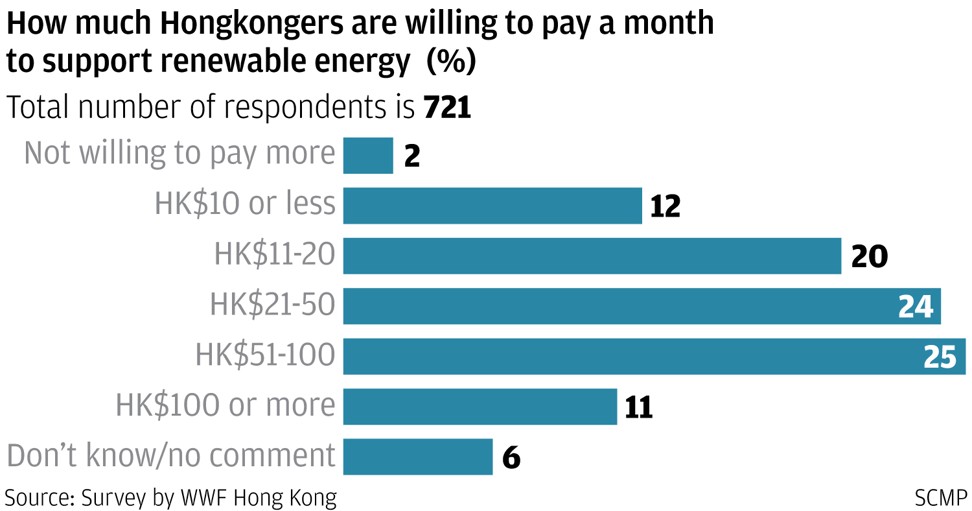
‘More than half’ of Hongkongers can accept 5 per cent rise in power bills to support renewable energy
Study also finds most respondents unsatisfied with government’s energy goal for 2030
More than half of Hongkongers would accept a 5 per cent increase in their electricity bills to support renewable energy, according to findings from a survey released on Friday.
The study by conservation group WWF-Hong Kong found that 60 per cent of 721 respondents were open to paying at least HK$20 (US$2.60) a month on top of their current spending to support the local development of renewable energy.
This was equivalent to a 5.2 per cent rise in the average monthly electricity bill of HK$380, the group said.
Hong Kong villagers using solar energy to help power their homes - and show its potential as a source of electricity for city
Over 10 per cent of respondents were willing to contribute more than HK$100 per month, while another 20 per cent agreed to pay anything between HK$10 and HK$20, the survey found.
From last December to January, the group conducted street interviews with people across Hong Kong. It also found that many were unsatisfied with the government’s renewable energy goal for 2030.
Last January, in light of the Paris Agreement, the Hong Kong government promised to boost the percentage of the city’s renewable energy to between 3 and 4 per cent from the current 1 per cent. A total of 63 per cent of respondents found the goal “insufficient” or “very insufficient,” according to the survey.
Statistics from the World Bank show that the percentage of renewable energy from power consumption was 18 per cent globally in 2014. The figure was 17 per cent in China and South Korea, 8.9 in the United States, and 5.5 in Japan.
“Hong Kong must use more renewable energy if it wants to reduce carbon emissions. And solar energy has the most potential to be developed,” Olivia To Pui-wai, WWF-Hong Kong’s public engagement officer for climate, said.
Time for Hong Kong’s power companies to lead the energy revolution for a sustainable city
The city currently generates 48 per cent of its energy from coal, 27 per cent from natural gas, and the remaining from nuclear and renewable sources. In 2014, power production, including the burning of coal and natural gas, was the source of almost 70 per cent of greenhouse gas emissions in Hong Kong, according to a report by the Legislative Council Secretariat.
WWF-Hong Kong also urged the government and power companies to set the feed-in tariff rate – a payment by electricity suppliers to households generating solar energy – at HK$4 per kilowatt, based on results of the survey.

The policy is already in place across more than 50 countries, and encourages the production and investment in renewable energy. Power companies buy the clean energy generated by households or businesses with solar panels or other facilities at a set rate.
Last April, the government and the city’s two power companies, CLP Power and HK Electric, agreed to implement the mechanism. The tariff rate will be announced in June.
In the study, although only a third of interviewees lived in places with a rooftop or balcony, almost 70 per cent of all respondents said they would only consider installing solar panels and producing clean energy if the costs could be recovered in less than nine years.
Based on a pilot projected launched by WWF-Hong Kong in Tai O, a HK$87,500 solar energy system comprising panels with a total surface area of 25 square metres can supply half of the power consumption for a four-person household. It would take 10 years to recover the costs at the suggested rate of HK$4 per kilowatt.


